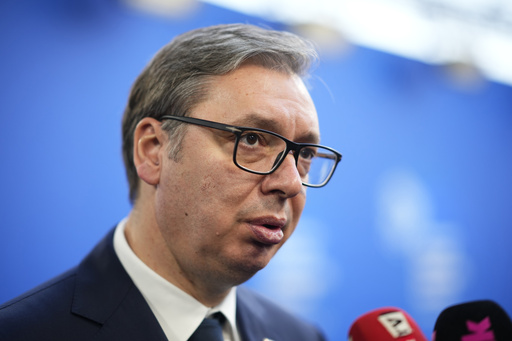BUDAPEST, Hungary — A gathering of approximately 50 European leaders, including Ukrainian President Volodymyr Zelenskyy and NATO Secretary-General Mark Rutte, is set to take place as they seek to reevaluate their trans-Atlantic partnerships. The participants are optimistic that Donald Trump’s impending second presidential term will steer clear of the conflicts and political controversies that characterized his first term.
Adding to the already complex landscape, Germany, regarded as Europe’s leading economic power, has plunged into a political crisis. This turmoil follows the dismissal of Finance Minister by Chancellor Olaf Scholz, which hints at the possibility of upcoming elections. This scenario could further escalate tensions between the resurgent far-right factions and traditional political establishments across Europe.
“The combination of these events adds even more complexity to the current situation,” remarked Polish Prime Minister Donald Tusk.
Nevertheless, the aftermath of the U.S. elections remains the primary focus. “Our connection with the U.S. is crucial, and we are eager to strengthen it,” stated Charles Michel, President of the European Council.
Separately, the 27 member nations of the European Union plan to convene for a summit after the departure of leaders from the United Kingdom, Turkey, and the Balkans, who will leave later in the evening.
Trump’s campaign has sparked concerns across Europe, as he has threatened various economic repercussions, including the potential for a trade conflict with Europe, a withdrawal from NATO commitments, and a significant reduction in support for Ukraine during its ongoing conflict with Russia. These developments could drastically alter the landscape for European nations.
Hungarian Prime Minister Viktor Orbán, known for his support of Trump, revealed that he had a discussion with the new president, expressing his enthusiasm for future collaborations. “We have grand plans ahead!” he declared on Thursday morning.
Similarly, Italian Prime Minister Giorgia Meloni, representing the far right, expressed enthusiasm for the “deep and historic strategic relationship that has always existed between Rome and Washington.”
This partnership faced significant strains during Trump’s initial term from 2017 to 2021. In 2018, his administration imposed taxes on EU-produced steel and aluminum, prompting retaliatory actions from European allies that included tariffs on American products such as motorcycles, bourbon, peanut butter, and jeans.
The repercussions of the U.S. election outcome are likely to resonate throughout Europe for years, particularly concerning issues such as the conflicts in Ukraine and the Middle East, as well as challenges related to migration and climate change.
Attending Thursday’s meeting will be President Zelenskyy, who is anticipated to advocate for increased assistance as Ukraine continues to combat Moscow’s military actions. The timing is particularly critical, given Trump’s claim that he would resolve the war “within 24 hours” of his election—a statement that raises concerns in Kyiv about a potential decline in American support in the wake of Trump’s electoral success.


